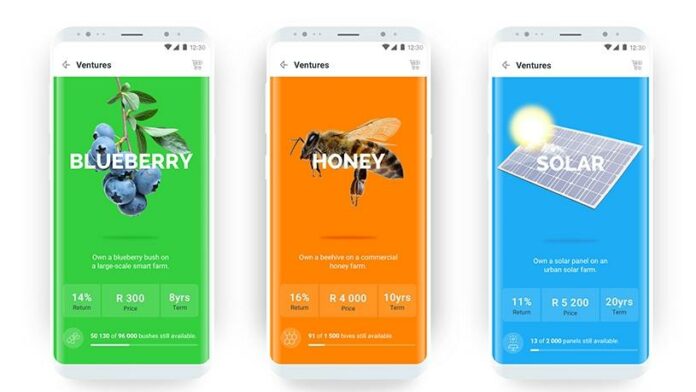
Financial services provider Fedgroup has admitted that it was pleasantly surprised by the strong demand for its impact investing products, which it introduced a year ago.
When the group launched the app, which allowed people to buy and then earn an income from solar panels, blueberry bushes, and beehives, it didn’t realise how popular it would become. “There’s a huge demand for it,” said Suraj Lallchand, Director of Ventures at Fedgroup.
Initially, Fedgroup had only predicted that it would generate about R10 million in its first year. It has since generated R70 million. Lallchand said the demand had been so great, that the company sold out its existing solar panel and beehive offering in a matter of months and is now selling future sites to cope with the demand.
These are solar panels that were yet to be installed and hives that still needed to be built.
The prospects for impact investing are on the rise, Lallchand said, adding that many foreign-based pension funds would soon have to commit 10% to 15% of their investments to impact products. “This means that very soon, institutional investors will probably go from treating these products as a curiosity to a serious investment.”
This change in attitude could already be seen in the R100-million in funding Fedgroup raised to support its impact products. Lallchand said it was so popular, it was four times oversubscribed. The group is looking to raise a further R500 million to R800 million before the end of the year.
He said people liked these impact products because they actually got to own something that is not only good for the planet, but was also a great investment, projected to generate strong returns.
Blueberry boon
For example, investors who bought a blueberry bush for R300, could look forward to a return of investment of around 12% per year over the estimated eight-year life cycle of the bush. This means that by the time the bush comes to the end of its life, it would generate a return of R600.
When the initial investment amount is subtracted, investors would make around R300 in profit. Investors are also able to further boost their returns by claiming a tax break for income generated through their asset. Solar panels are particularly lucrative in this regard, as they qualify for a Section 12B tax benefit, through their status as a green energy development. – GeekWire,co.za

